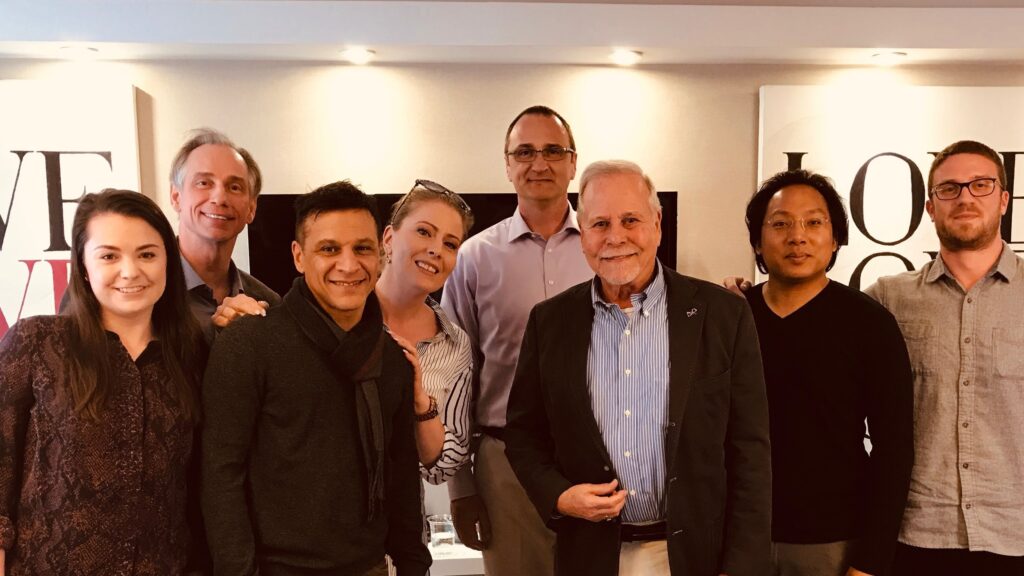
By Michael Arndt, Alumni Coordinator, CAST Centers
Follow Michael on Instagram: @michaelcastcenters
CBT (Cognitive Behavioral Therapy) was first put into practice by Aaron T. Beck in the 1960’s and has in the ensuing years become an industry standard for evidenced-based care in mental health and addiction treatment. It traces its philosophical roots to a marriage of Greek Stoicism and Eastern mindfulness practices. Stoicism teaches us to essentially challenge our negative, maladaptive or unrealistic thoughts and perceptions of the world around us as a way of living. It is about finding objective truths. Mindfulness practices teach us to be able to examine our own thoughts and to take them with a grain of salt. The idea behind CBT is that when you are able to reframe these problematic thoughts, you can then move into changing behavior that is not serving you.

CAST Centers recently hosted an in-service for our staff with Dr. Joel Becker, Ph.D who studied with Dr. Aaron T. Beck in the 1970’s in Boston after completing his training at Harvard. He now heads the Cognitive Behavior Associates practice here in Beverly Hills. He has been a leader in CBT since just after its inception. He now spends time working with SGM (sexual and gender minority) clients, in addition to teaching at UCLA in the Department of Psychology and the Geffen School of Medicine, precepting and seeing clients at Cognitive Behavior Associates.
CBT was originally developed with the hope of treating major depression. Over the years it has evolved to include many variations that treat everything from substance use disorders to OCD and anxiety. Offshoots of CBT include the very popular DBT (dialectical behavioral therapy) which is primarily used in the treatment of personality disorders like borderline personality disorder. There is also mindfulness CBT, compassion-based CBT among many others, all sharing the same goal but aim to achieve it with slightly different approaches.
Mindfulness is seen across the board in all of the various offshoots of CBT. Mindfulness training teaches us to sort of detach ourselves from our thoughts (or cognitions, hence the word cognitive in CBT) instead of immediately reacting to them or even accepting them as necessarily true. In the recovery world, this is called “the pause.” It is a practice that lessens our reactivity to our thoughts and beliefs. For example, just because I have a negative thought towards my partner does not mean that it is true, or that I am a jerk for thinking it. It is just a thought, and I do not need to act on it. I can pause and ask myself if this thought is true, helpful, or in alignment with how I truly feel when I am coming from a more authentic and relaxed place. Or just because I think of using drugs, or engaging in self-harm does not mean I have to do it.
At its core, CBT is about examining root causes of negative thoughts and then building up towards taking contrary actions and setting goals as a team with the therapist. Over time, and with enough practice, we literally rewire our brains to act more in alignment with what we really want, and to make it second nature to do so. CBT is not the traditional open-ended talk therapy model that most of us think of when we think of therapy. Sitting in a room rehashing our childhoods over and over again with vague insights. It is about action, and implementing new tools into our daily lives. One of the things that sets CAST apart from most treatment centers is that we are very action-oriented. While we believe it is important to address underlying issues, we encourage and support our clients as they decide what kind of life they want for themselves. That is what our programs are all about: helping our clients dig deep and figure out exactly what they want out of life at their core so that they can begin building a life that is theirs and worth fighting for.

CAST Centers recently hosted an in-service for our staff with CBT pioneer, Dr. Joel Becker, Ph.D.
GET STARTED TODAY!
(323) 457-8208
CAST Centers is Proud to Celebrate Over 18 Years
Helping Individuals & Families
Programs
What We Treat
-
Substance Abuse
Insurance
Alumni
Contact Cast Centers
CAST Centers
630 N Doheny Drive
West Hollywood, CA 90069
(323) 457-8208
Email
Administration
632 N Doheny Drive
West Hollywood, CA 90069
(323) 457-8208
Email
Service Area
CAST Centers is licensed by the California State Department of Health Care Services. DHCS Certification for Intensive Outpatient and Outpatient Services.
License Number: 190936BP.
Expiration Date: 8/31/2025.
Copyright © 2022 CAST Centers. All rights reserved.
Privacy Policy | HIPAA | Terms of Use | Site Map


